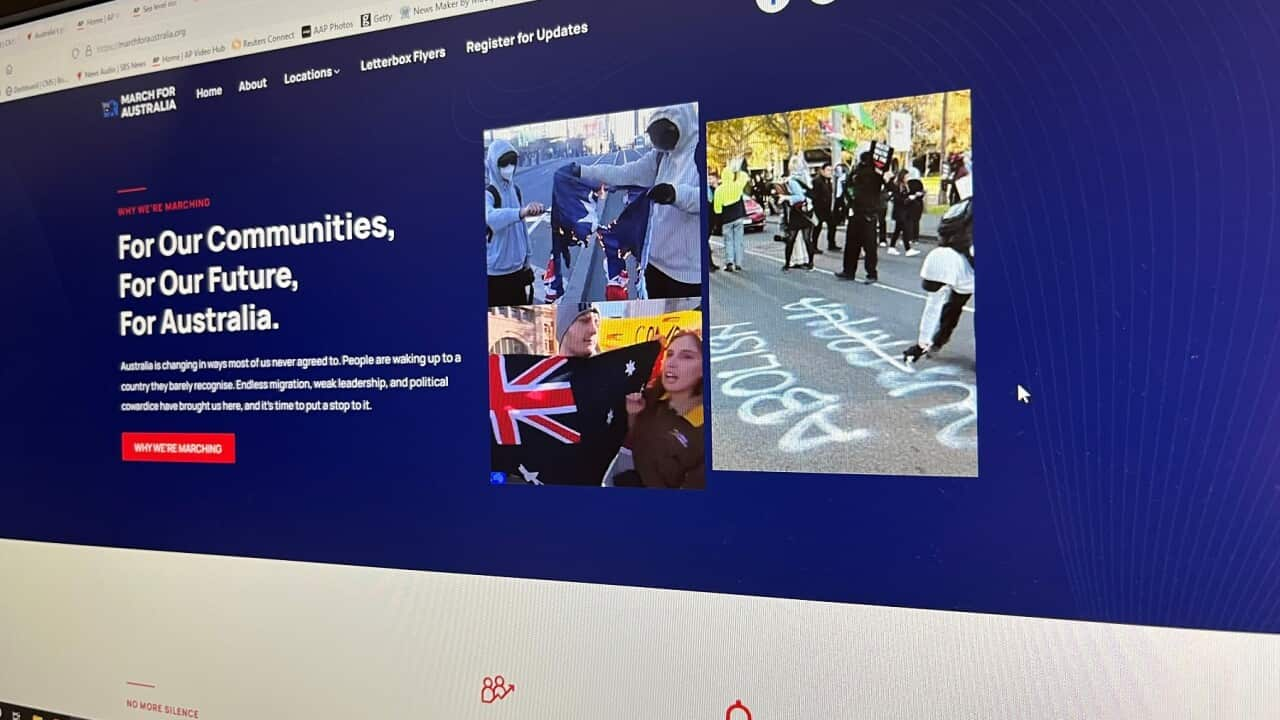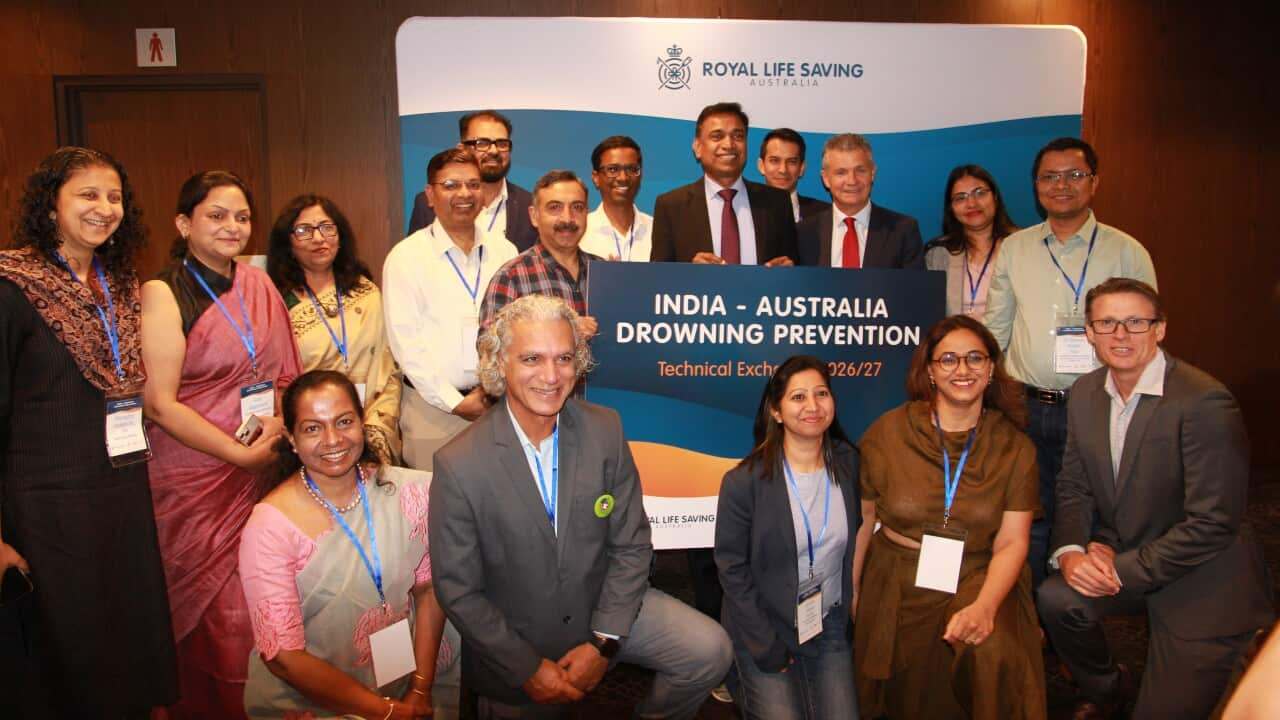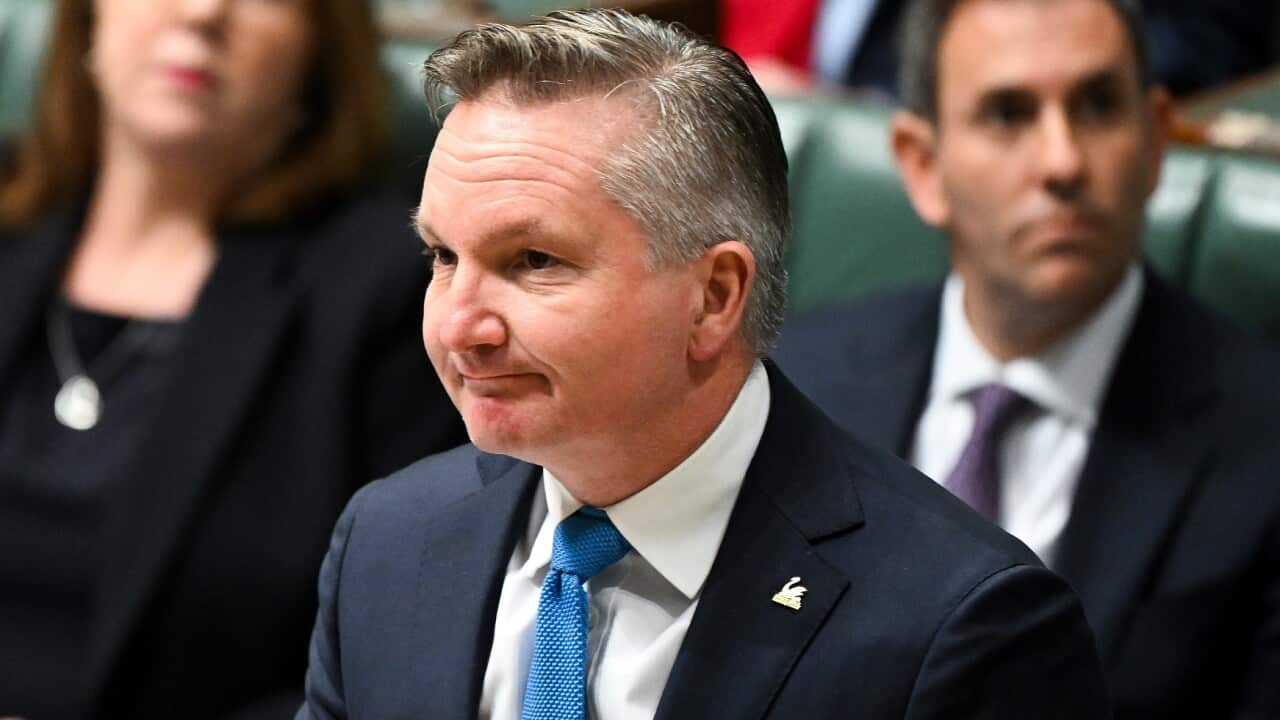Listen to Australian and world news, and follow trending topics with SBS News Podcasts.
TRANSCRIPT
One in three Australians was born overseas - most from the UK, followed by India, China then New Zealand.
It's a result of a net increase in overseas arrivals over a period of decades - something a group of Australians says it's time to end.
The unknown, opaque movement - March for Australia - is calling for an end to what organisers describe as "mass migration" and reclamation of Australia's identity.
Indian migration to Australia has increased the most in the past decade - and the community is concerned about the impacts of these marches on its members.
Jasbir Singh Suropada, the Vice Chair of the Sikh Interfaith Council of Victoria, has warned Melburnians to avoid the site of planned marches this weekend.
He told SBS Punjabi that while he understands the right to protest, he says the fact that the organisers call for "no foreign flags" at the marches this weekend, is concerning.
"If you have got the right to protest, why do we not have the right to protest? Who are the people behind it and what is their agenda? It is again hearsay, hearsay."
There is little detail about who is behind the Marches for Australia movement, which describes its organisers as a grassroots coalition of nationalists, patriots and every day Australians.
A woman who calls herself "Sam" and claims to bE one of the marches organisers, recorded a video statement for Channel Seven.
"Myself as well as every other state organiser is intending for this event to be peaceful, non-violent, non aggressive and just a bunch of your average Australians standing up against mass immigration."
On the Marches for Australia Instagram page, the movement rejects associations with known alt-right groups and says its organisers represent a diverse range of political backgrounds.
Amar Singh, the founder of Turbans 4 Australia and the 2023 Australian Local Hero, described the scheduled protest to SBS Punjabi as an "attack on our Australian multicultural society".
"And I sincerely urge people that are hosting this protest to rethink their position. I also want to warn other people who might be out and about doing the work on the 31st to be careful if this does go ahead, because this sort of hate does not discriminate."
An unnamed Uber driver also told SBS Punjabi he is concerned for his safety while doing his job in one of the cities in which a march is scheduled on Sunday.
"Because I am the Uber X driver and I work more on weekends, I don't know what's going to happen. But it's scary as well."
Last week, the Federation of Ethnic Communities' Councils of Australia issued a statement on the rally, saying "singling out new arrivals or culturally diverse communities ignores our shared history".
Home Affairs Minister Tony Burke told SBS in a statement, “there is no place in our country for people who seek to divide and undermine our social cohesion."
He added that the government will “..stand with modern Australia against these rallies - nothing could be less Australian."
Sustainable Population Australia spokesman Michael Bayliss says while he understands concerns around these marches, they are a symptom of not having a forum for a rational, respectful debate about increased migration and its impacts over decades.
Mr Bayliss says political leaders are pursuing economic growth at the expense of the environment, infrastructure and housing affordability.
"An endless growing G-D-P, based on speculating housing prices benefits a small minority in the big business and property developers, at the expense of the majority of all Australians. First, second and fifth generation alike."
For the past decade, the Permanent Migration Program's intake has been set between 160,000 and 220,000 people.
By 2064‑65, nearly one-quarter of the population will be over 65 and Australia’s fertility rate is expected to remain at record lows for at least the coming few years.
The government has opened places for 185,000 people from overseas to move here this year - as part of its goal in boosting participation rates and the size of the labour force.
But Mr Bayliss says it is time to consider the limits of the nation's natural environment and finite resources.
"We are reaching multiple limits to growth and we need to adjust our populations accordingly. With the realisation that we are hitting planetary boundaries and limits to growth and need some severe adjustments. I think a lot of our political decision-making is anthropocentric. It doesn't put human needs side by side with the natural world."
Australia’s population is projected to grow from 27.1 million to 31.3 million people in the coming decade.













